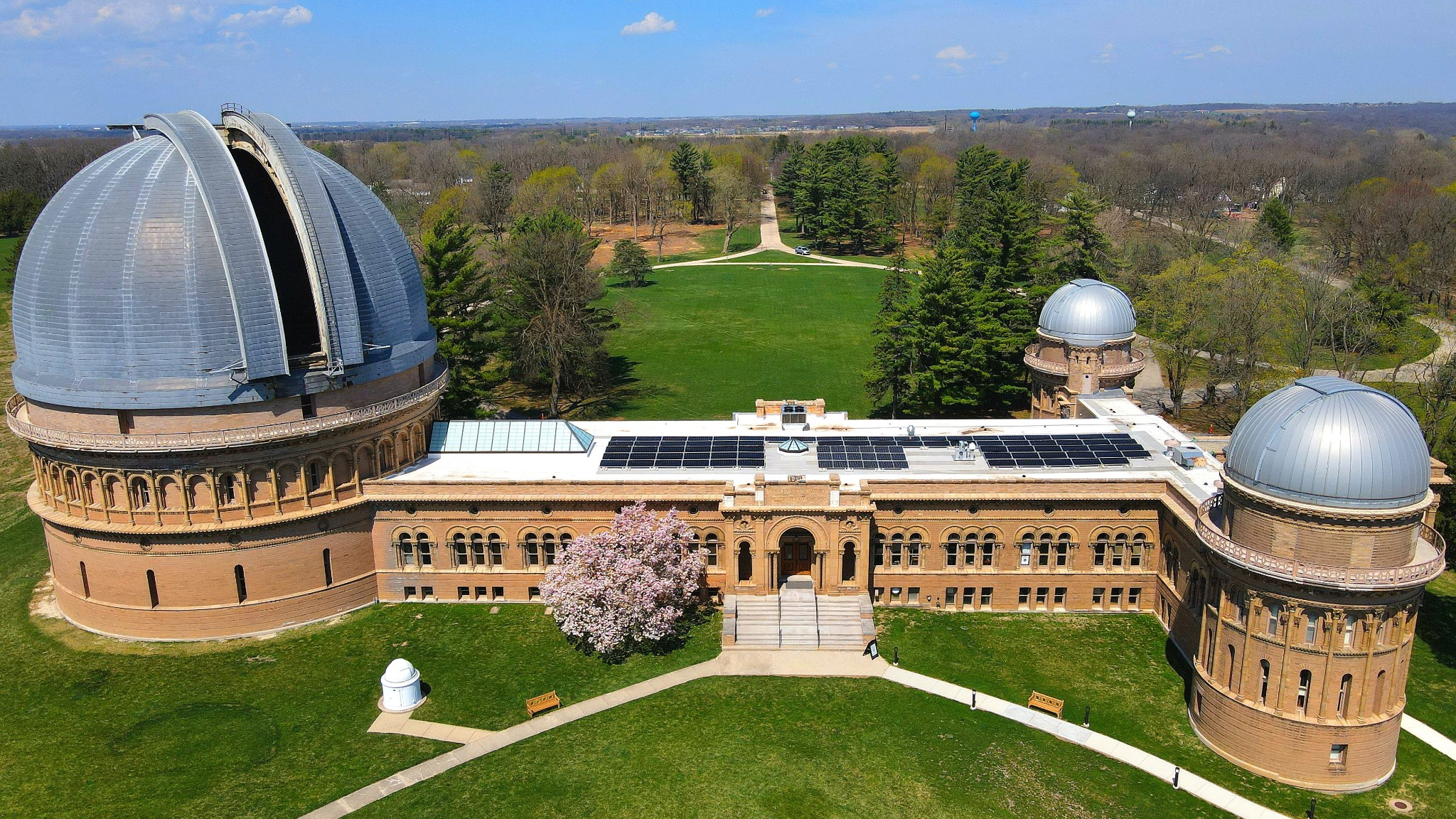
Today, Yerkes remains unsurpassed as the world’s largest refracting telescope. When you participate in one of our stargazing programs, you are looking through what is still one of the most powerful telescopes available to the general public. One of my roles at GLAS was to lead activities at commutiy-wide Star Parties to explain concepts of gravity and optics.
LENSS and the Lake Water Quality Monitor
The Lakeshore Environmental and Night Sky Sensor (LENSS) project focuses on preserving the dark skies of Walworth County. Light pollution negatively affects the health of humans, plants, animals, and even boating safety on Geneva Lake. The Water Quality Monitor is focused on measuring the environmental impacts of human use of Geneva Lake. Teams of high school students designed, tested and built remote night sky sensors for LENSS and a floating lake sensor for the water quality study. My role was to guide Python code created by the students to analyze the data and performance of the sensors.
Working with policy-makers, local organizations, interns, students, and many volunteers, the Dark Skies Office is on its way towards reforming light ordinances and raising public awareness of the benefits of our shared resource: a truly dark sky. My role was to create infographics using GIMP to promote these ideas on public platforms.
Additionally, the Dark Skies Office is pursuing formal International Dark-Sky Association recognition as an Urban Night Sky Place for Williams Bay’s Kishwauketoe Nature Conservatory. An Urban Night Sky Place designation is awarded to places surrounded by large urban areas whose planning actively promotes the night sky despite the artificial light pollution nearby.
Learn more about GLAS by visiting their website here.